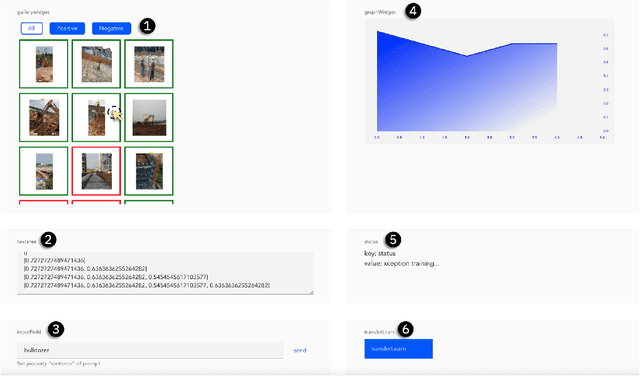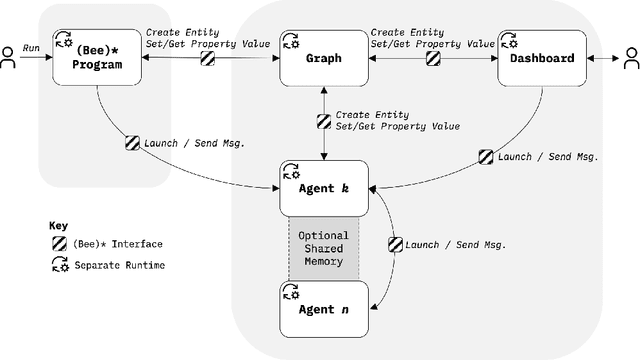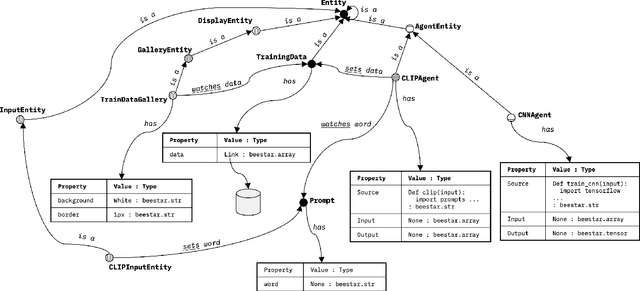Jessie Rosenberg
Rapid Development of Compositional AI
Feb 12, 2023



Abstract:Compositional AI systems, which combine multiple artificial intelligence components together with other application components to solve a larger problem, have no known pattern of development and are often approached in a bespoke and ad hoc style. This makes development slower and harder to reuse for future applications. To support the full rapid development cycle of compositional AI applications, we have developed a novel framework called (Bee)* (written as a regular expression and pronounced as "beestar"). We illustrate how (Bee)* supports building integrated, scalable, and interactive compositional AI applications with a simplified developer experience.
* Accepted to ICSE 2023, NIER track
SimVAE: Simulator-Assisted Training forInterpretable Generative Models
Nov 19, 2019



Abstract:This paper presents a simulator-assisted training method (SimVAE) for variational autoencoders (VAE) that leads to a disentangled and interpretable latent space. Training SimVAE is a two-step process in which first a deep generator network(decoder) is trained to approximate the simulator. During this step, the simulator acts as the data source or as a teacher network. Then an inference network (encoder)is trained to invert the decoder. As such, upon complete training, the encoder represents an approximately inverted simulator. By decoupling the training of the encoder and decoder we bypass some of the difficulties that arise in training generative models such as VAEs and generative adversarial networks (GANs). We show applications of our approach in a variety of domains such as circuit design, graphics de-rendering and other natural science problems that involve inference via simulation.
 Add to Chrome
Add to Chrome Add to Firefox
Add to Firefox Add to Edge
Add to Edge